With more than 611,000 new cases of tuberculosis (TB) each year, the Islamic Republic of Pakistan (hereinafter referred to as Pakistan) is positioned ad a highly endemic country. The Fujifilm Group is contributing to improving the TB screening rate in areas at high risk of disease by providing support to local organizations.
- Population:240.5 million
- Area:796,095km2
- Capital:Islamabad
- * Quoted from “Basic Data on Pakistan,” Ministry of Foreign Affairs of Japan. (as of September 2023)
Pakistan has the fifth highest number of new cases per year in the world, and measures to prevent the spread of infection are urgently needed.
- Annual number of affected persons:approximately 611,000
- Number of affected persons per 100 000 population:267
- * Quoted from “Tuberculosis profile: Pakistan” by the World Health Organization (WHO) (as of September 2023)
TB screening regime is nonexistent in areas with poor transportation and power infrastructure, making it difficult to determine the actual scale of infection.
Coal miners in Pakistan are perceived to be at a relatively high risk of contracting TB due to years of exposure to silica*1 dust at mining sites and harsh working conditions. However, the lack of roads and electricity in mining areas, and limited access to medical care have made local health check-up opportunities inadequate.
Prolonged inhalation of large amounts of small dust or metal particles, and mineral dust increases the risk of developing pneumoconiosis, a condition in which lungs react to the dust, mainly by fiber proliferative changes. Pneumoconiosis not only reduces lung function, but can be a source of various diseases, including pulmonary tuberculosis. People with pneumoconiosis are more susceptible to pulmonary tuberculosis than those without it. As pneumoconiosis progresses, pulmonary tuberculosis also becomes harder to treat.
Pneumoconiosis is recognized as one of the 'occupational lung diseases', often associated with mining, construction industry, etc.. It is also related to pulmonary TB, which is known to be a reason why many coal miners in Pakistan contract TB.
- * Created with reference to the description on the website of Ministry of Health, Labor and Welfare
- *1 Silica is a generic term for silicon oxide, chemically represented as silicon dioxide (SiO2). Crystalline silica is known to pose a risk of silicosis and lung cancer when inhaled. On the other hand, amorphous silica, which is used in cosmetics and food additives, is recognized as having little or no skin or eye irritation, allergenicity, photosensitization, or carcinogenicity.
Dopasi Foundation, a non-profit organization that has been working on tuberculosis prevention, screening and treatment in Pakistan for many years, in collaboration with Stop TB Partnership, launched a TB screening project in April 2019. For the first time, AI supported portable X-ray device was used for TB screening anywhere in the world. Similar screening model was then adopted in different countries.
Using a compact, lightweight, portable X-ray device with built-in power supply, and diagnostic software developed using AI technology, large-scale TB screening in mining areas was achieved. Under their initiative, till August 2021, more than 150,000 individuals have been screened for TB at 117 locations in three districts, that hosts almost 80% of coal miners of the country. As a result, 424 people were diagnosed with TB, and received treatment at various medical institutions.
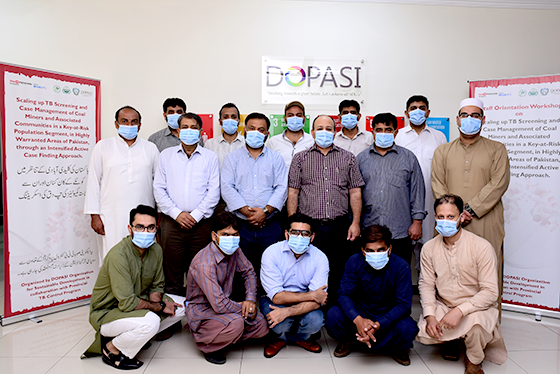
Members of the DOPASI Foundation team
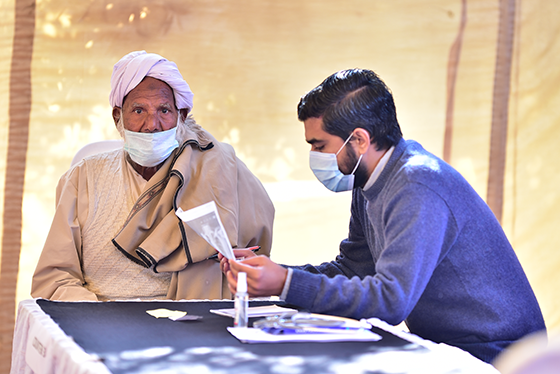
Medical interview at TB screening
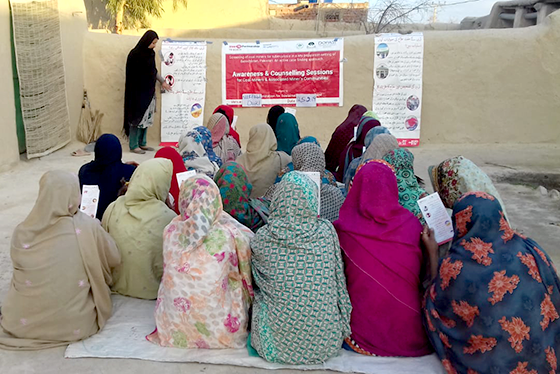
Explanatory meeting on the importance to take TB screening
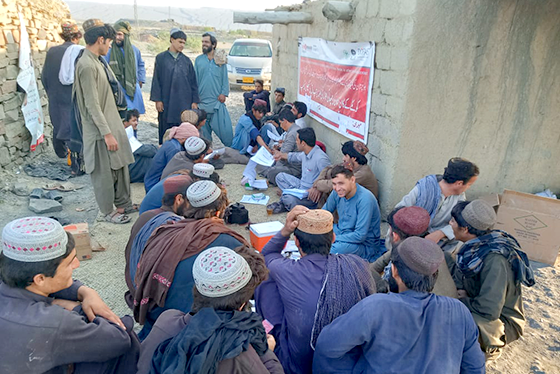
Many residents lining up for X-ray TB screening
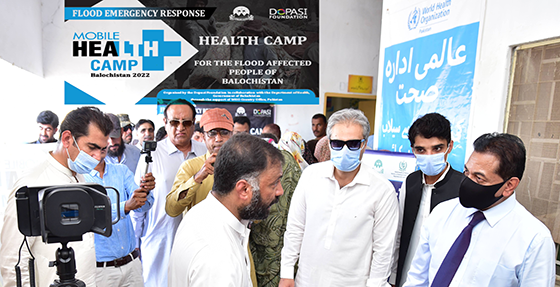
Venue for TB screening
Ms. Kinz ul Eman
Dopasi Foundation has been engaged in the fight against tuberculosis in Pakistan for the last three decades. As Director Programs, I have had the privilege of leading a technological innovation that has the potential to serve masses globally. Our foundation has pioneered the deployment of ultra-portable X-ray equipped with AI-powered diagnostic support for TB screening across the globe shared our experience with 23 organizations across 10 countries.
This innovative approach has made screening tools accessible to people who previously did not have access to them, and we are proud to have played a role in making healthcare services more equitable.
I must also commend our partner, Fujifilm, for their exceptional work in developing an ultra portable X-ray device to screen TB. Their dedication to providing quality healthcare services for underserved segments of the population is truly inspiring.
Looking ahead, Dopasi Foundation is keen to continue working with Fujifilm and other partners to bring about further innovations that will shape healthcare mechanisms for the times to come. We remain committed to our mission of making quality healthcare services accessible to all, and we are excited to be part of the global movement for change in this field.



